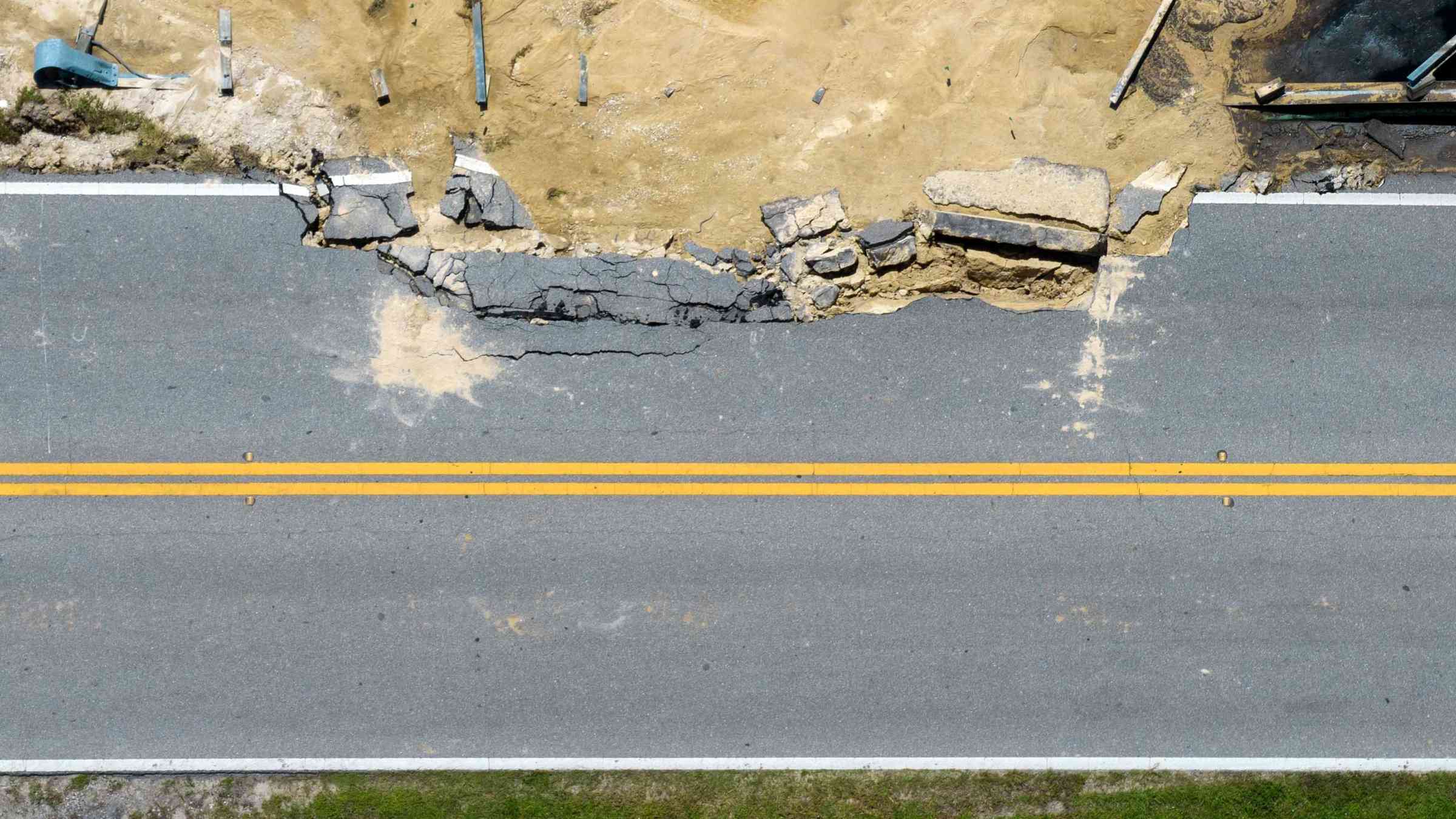Creating Conditions for Financing and Investment for Disaster and Climate Resilient Infrastructure
The Asia-Pacific is the world's most disaster-prone region. In 2022, the region experienced over 140 disasters, affecting over 64 million people and causing US
$57 billion in economic damages. The frequency and intensity of disasters will only increase over time, making investments in disaster resilience imperative for
protecting hard-won development gains. UN-ESCAP estimates that up to US $155 billion needs to be invested in transformative adaptation to address climate
change and build a resilient future.
The event will explore practical upstream and downstream interventions for enhancing financing towards climate change mitigation and disaster risk resilience
in infrastructure investments, focusing on:
• Enhancing national governments' infrastructure planning by integrating climate and disaster risk assessments and ensuring alignment with national climate
resilience and low-carbon goals. This aims to both future-proof infrastructure pipelines and attract diverse green financing sources (including private
investments, green bonds, and climate funds).
• Leveraging PPP models to deliver quality infrastructure that substantively integrates climate and disaster risk reduction and resilience priorities. This recognises
that governments can strategically leverage the private sector's strengths to meet climate and disaster risk reduction and resilience goals, provided PPPs are
structured to integrate the necessary performance requirements and risk-sharing conditions.
The event will feature speakers from the following organisations:
• Partnerships for Infrastructure (P4I): An Australian Government initiative partnering with Southeast Asia to drive sustainable, inclusive, and resilient growth
through quality infrastructure.
• Philippines Department of Transportation (Planning and Project Development Division): The Philippine government's executive department responsible for
planning, delivery, and operation of the Philippines transportation systems across aviation, maritime, railway, and road.
• ASEAN Secretariat (TBC): Administrative body that supports ASEAN in coordinating and implementing ASEAN policies and managing operations for
promoting regional integration.
Australian Government representative (TBC)
Proposed agenda for Partner Event - (14 October to 17 October 2024)
- Opening Remarks by Kristin Tilley Australia's Ambassador for Climate Change (TBC)
- Presentation on creating conditions for financing and investment for disaster risk reduction and climate resilient infrastructure by Becky-Jay Harrington, Head
of Climate and Inclusion, Partnerships for Infrastructure (P4I)
- Panel discussion followed by Q&A by Lynn Tho, Infrastructure Advisory Lead, P4I, Representative from Philippines Department of Transportation Philippines
(TBC), Representative from ASEAN Secretariat (TBC), Representative from Australian Government (TBC), Panel to be moderated by Becky-Jay Harrington.
- Closing + short survey by Becky-Jay Harrington Head of Climate and Inclusion, P4I
- Kristin Tilley, Australia's Ambassador for Climate Change (TBC) or HK Yu PSM, Australia's Ambassador to the Philippines (TBC)
- Becky-Jay Harrington, Head of Climate and Inclusion, P4I
- Lynn Tho, Infrastructure Advisory Lead, P4I
- Representative from Australian Government (TBC)
- Representative from Department of Transportation Philippines (TBC)
- Representative from ASEAN Secretariat (TBC)
Learn more
Partnerships for Infrastructure (P4I) is an Australian Government initiative to drive sustainable, inclusive and resilient growth through quality infrastructure. P4I
partners with Cambodia, Indonesia, Laos, Malaysia, Philippines, Thailand, Timor-Leste, Vietnam and the Association of Southeast Asian Nations (ASEAN).
P4I works with partners to strengthen infrastructure decision-making and practice across the transport, energy, utilities and telecommunications sectors. P41's
focus is on the early stages of the infrastructure lifecycle, including planning and prioritisation, financing strategy, and procurement. P4I also advises on the
overarching infrastructure policy context and sector-specific regulatory issues.
The three main services offered to partners are infrastructure advisory services, linkages with Australian government agencies and other institutions, and
knowledge and learning. As the foundation of quality infrastructure, P4I also integrates gender equality, disability, and social inclusion, and disaster risk
reduction and climate change into all activities.
Delivered through a single team, P4I is led by the Australian Department of Foreign Affairs and Trade in collaboration with EY, Adam Smith International, The
Asia Foundation and Ninti One.
More information about P4I is available at https://www.partnershipsforinfrastructure.org
In the Philippines, P4I is collaborating with DOTr to develop guidelines for incorporating climate and disaster resilience into transport projects, including both
public sector initiatives and unsolicited proposals. The Philippines is considered to be one of the world's most disaster-prone countries. Disruption to transport
impacts communities, businesses, and disaster recovery efforts. Enhancing the resilience of transport infrastructure is crucial for the country's social and economic development.

Agenda
Online access
Details
Organized by
Australian Government's Partnerships for Infrastructure initiativeContact
Becky-Jay Harrington, Disaster Risk Reduction and Climate Change Lead, P4I, email: [email protected]
